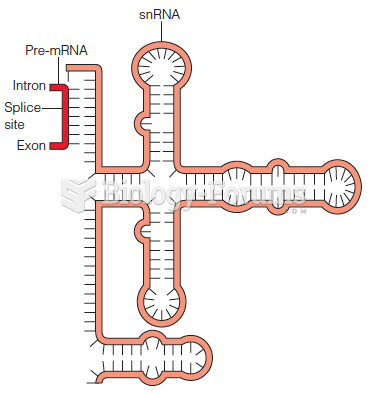|
|
|
About 60% of newborn infants in the United States are jaundiced; that is, they look yellow. Kernicterus is a form of brain damage caused by excessive jaundice. When babies begin to be affected by excessive jaundice and begin to have brain damage, they become excessively lethargic.
There are approximately 3 million unintended pregnancies in the United States each year.
Bacteria have flourished on the earth for over three billion years. They were the first life forms on the planet.
In inpatient settings, adverse drug events account for an estimated one in three of all hospital adverse events. They affect approximately 2 million hospital stays every year, and prolong hospital stays by between one and five days.
Individuals are never “cured” of addictions. Instead, they learn how to manage their disease to lead healthy, balanced lives.
 Children with Down syndrome have a small head, short, thick neck, flattened face, and a distinctive ...
Children with Down syndrome have a small head, short, thick neck, flattened face, and a distinctive ...
 Pablo Picasso, Medical Student, Sailor, and Five Nudes in a Bordello (Compositional study for Les ...
Pablo Picasso, Medical Student, Sailor, and Five Nudes in a Bordello (Compositional study for Les ...





